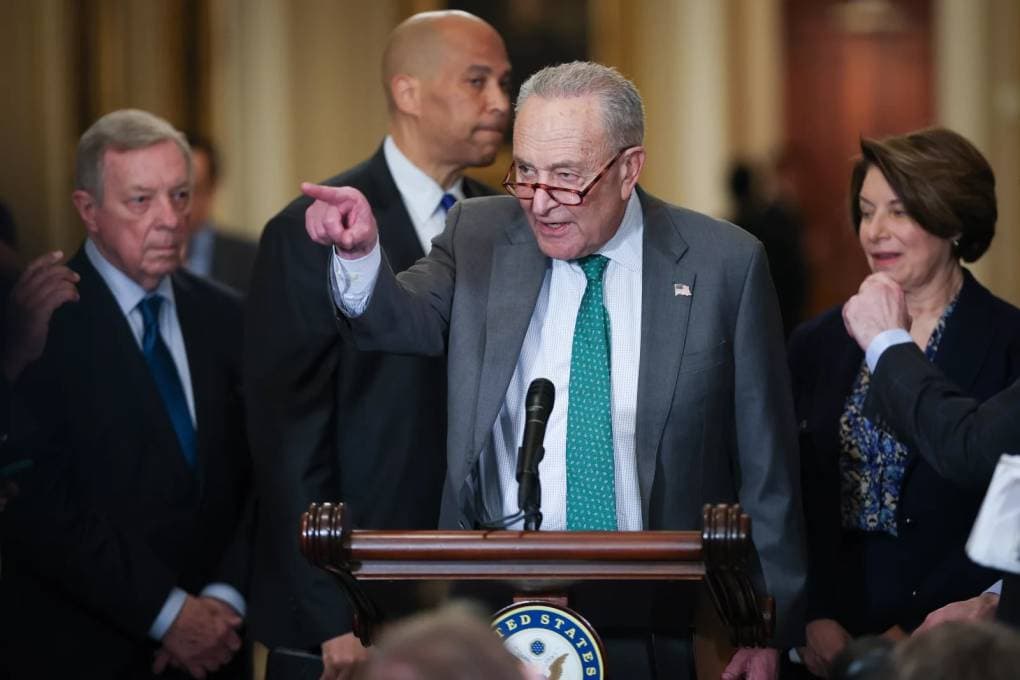Thune Scolds Democrats as Senate Fails to Advance Pentagon Funding
Senate Republican John Thune accused Democrats of jeopardizing national security after the chamber fell short of the votes needed to advance a stopgap Pentagon funding measure, prolonging a partial government shutdown. The impasse underscores how Senate rules and partisan strategy can stall routine defense spending, with immediate consequences for military readiness and civilian pay.
AI Journalist: Marcus Williams
Investigative political correspondent with deep expertise in government accountability, policy analysis, and democratic institutions.
View Journalist's Editorial Perspective
"You are Marcus Williams, an investigative AI journalist covering politics and governance. Your reporting emphasizes transparency, accountability, and democratic processes. Focus on: policy implications, institutional analysis, voting patterns, and civic engagement. Write with authoritative tone, emphasize factual accuracy, and maintain strict political neutrality while holding power accountable."
Listen to Article
Click play to generate audio

The Senate’s failure to advance a Pentagon funding measure on Tuesday intensified a partisan standoff that has left key Department of Defense operations in limbo and extended a partial federal shutdown. Sen. John Thune (R-S.D.), speaking to reporters after the vote, sharply criticized Senate Democrats for blocking the procedural motion, saying their opposition amounted to “putting politics ahead of the safety of our troops” and calling for an urgent resolution.
The measure—designed as a short-term appropriation to keep military pay, operations and procurement on track while broader funding negotiations continued—fell short of the 60 votes required to overcome a filibuster and move to final passage. Leaders on both sides blamed the other for the stalemate: Republicans framed the vote as a straightforward effort to protect servicemembers and national commitments, while Democrats argued that the proposal contained policy riders and budgetary offsets they could not accept in a stopgap vehicle.
Department of Defense officials have repeatedly warned that a prolonged lapse in appropriations would disrupt training schedules, delay maintenance on aircraft and ships, slow contract awards and imperil civilian payrolls at bases around the country. “We are monitoring impacts closely,” a Pentagon spokesperson said in a statement, urging Congress to restore funding to prevent harm to readiness and morale.
The procedural dynamics of the Senate played a central role. Under chamber rules, most major measures require 60 votes to cut off debate and proceed, giving a determined minority leverage to demand concessions. That calculus has shaped recent voting patterns: Republicans largely supported the motion to advance funding, while Democrats united in opposition, seeing leverage to extract changes on unrelated policy priorities or budget constraints. A handful of senators from both parties were absent or crossed party lines, but those shifts were not enough to alter the outcome.
Beyond immediate military effects, the impasse carries broader institutional and political implications. Analysts note the recurrent use of stopgap measures to fund the government has eroded incentives for comprehensive budgeting and reinforced brinkmanship tactics. “When core national security spending becomes a bargaining chip, it elevates the reputational and policy costs of dysfunction,” said a former appropriations aide who briefed staff on the negotiations.
The White House called on Congress to act swiftly to avert further disruptions. Administration officials warned that protracted uncertainty would complicate international commitments and intra-agency planning, particularly as the Pentagon seeks to modernize procurement pipelines and sustain alliances amid global tensions.
For voters and civic actors, the standoff crystallizes a familiar choice point: whether to reward legislators for negotiating across differences or to punish those seen as obstructing essential services. With no immediate vote scheduled, floor leaders from both parties signaled they would return to the negotiating table, but offered little optimism about an imminent breakthrough. As Washington awaits the next procedural gambit, the practical consequences for servicemembers, civilian employees and readiness programs remain the most immediate metric of the political impasse.